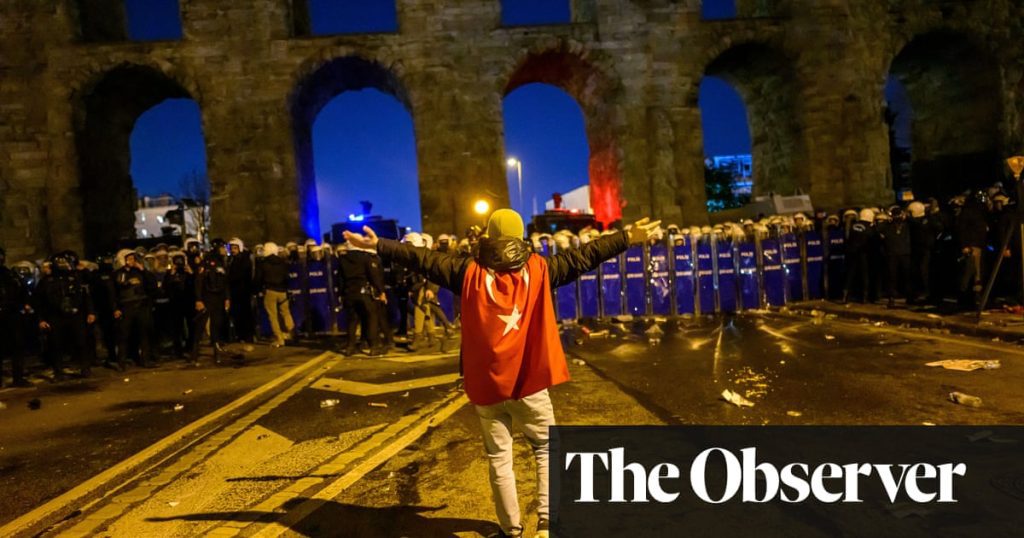Protests Erupt in Istanbul Following Mayor’s Arrest
Last week, when protesters convened at Istanbul’s city hall in reaction to the arrest of Ekrem İmamoğlu, a 26-year-old named Azra initially hesitated to defy the gathering ban. However, as protests spread across university campuses and various cities in Turkey, she felt compelled to join the movement.
“Seeing the determination in people’s eyes and the enthusiasm on their faces made me decide to participate,” she said, smiling among the tens of thousands who gathered by city hall on Friday night in defiance of the ban. Although surrounded by crowds, Azra was concerned about possible repercussions and chose not to reveal her full name. Many demonstrators concealed their identities to avoid facial recognition technology and to protect against the tear gas and pepper spray sometimes used by police. Others celebrated, taking selfies as fireworks lit up the night sky.
Significance of İmamoğlu’s Arrest
The early morning arrest of Istanbul’s mayor marked a critical moment in Turkey’s ongoing erosion of democratic norms. Opponents of President Recep Tayyip Erdoğan view this as a strategy to eliminate the main opposition figure ahead of forthcoming elections, anticipated before 2028.
İmamoğlu, along with over 100 individuals including city officials and the mayor’s construction company head, is facing charges of embezzlement and corruption, which he disclaim. He also rejects accusations of terrorism related to his collaboration with a leftist political alliance prior to last year’s municipal elections, where Erdoğan’s Justice and Development Party (AKP) experienced significant setbacks.
Justice Minister Yılmaz Tunç dismissed concerns that the charges against İmamoğlu and other members of the opposition Republican People’s Party (CHP) were politically motivated, stating that linking judicial actions to the president is “an act of audacity and irresponsibility.” In the days following İmamoğlu’s arrest, what began as protests against his detention evolved into a broader movement advocating for democracy and equal rights, according to Azra.
Growing Discontent and Government Response
Demonstrators expressed their defiance against Erdoğan’s long-standing ambition to regain control of Istanbul. Diler, another protester, described the protests as a culmination of years of pressure due to economic hardships in areas like the economy, education, and healthcare, emphasizing public frustration with the current government.
During the Istanbul protests, organizers claimed an attendance of 300,000, with reports of clashes between protesters and police in various cities. Authorities responded by intensifying measures to disperse the protests, bolstering police presence and blocking access to city hall.
Erdoğan articulated his growing discontent with the protests, deeming them a form of “street terrorism.” While domestic reactions to İmamoğlu’s detention have been strong, international responses have been largely subdued. The Turkish central bank reportedly intervened with a record $11.5 billion to stabilize the lira following İmamoğlu’s arrest, as investors reacted to the political turmoil.
Despite limited international criticism, upcoming elections bring renewed focus on İmamoğlu, who is expected to be announced as the CHP’s presidential candidate soon. There is a heightened sentiment among his supporters that he should remain the opposition’s candidate, even if it means campaigning from prison. Observers caution that Erdoğan’s attempts to marginalize İmamoğlu could backfire, recalling how Erdoğan himself gained support during a previous imprisonment when he was mayor of Istanbul.



